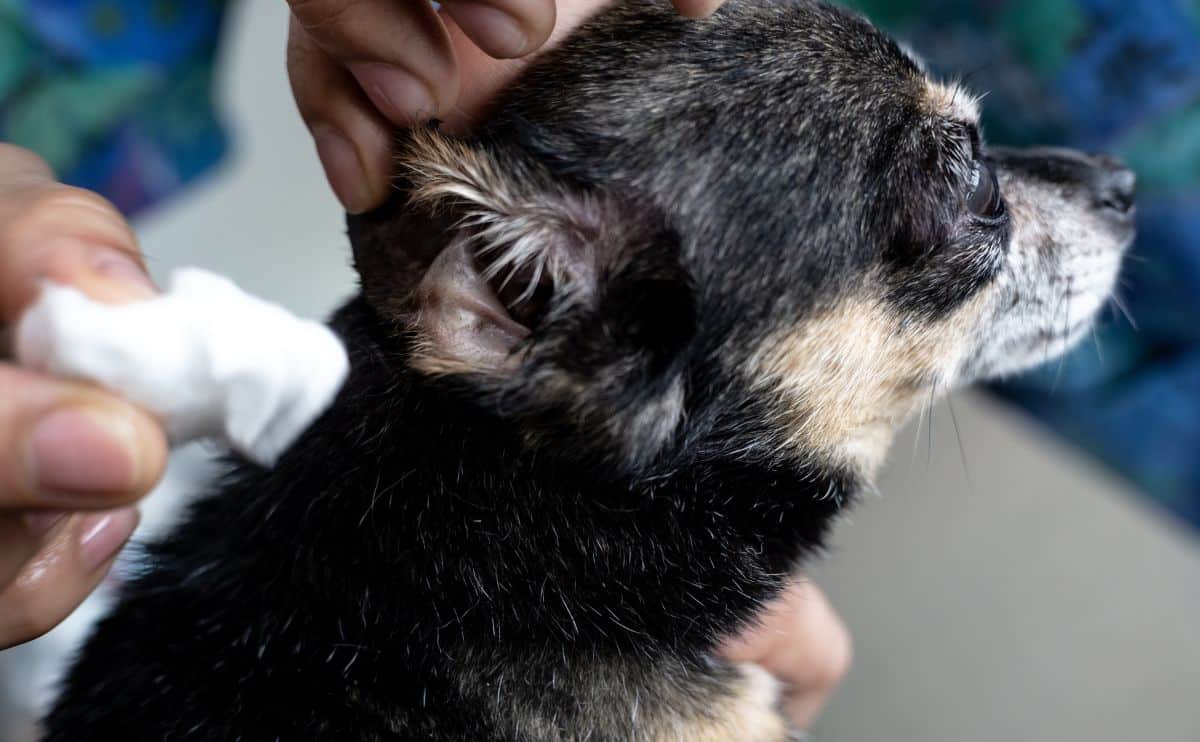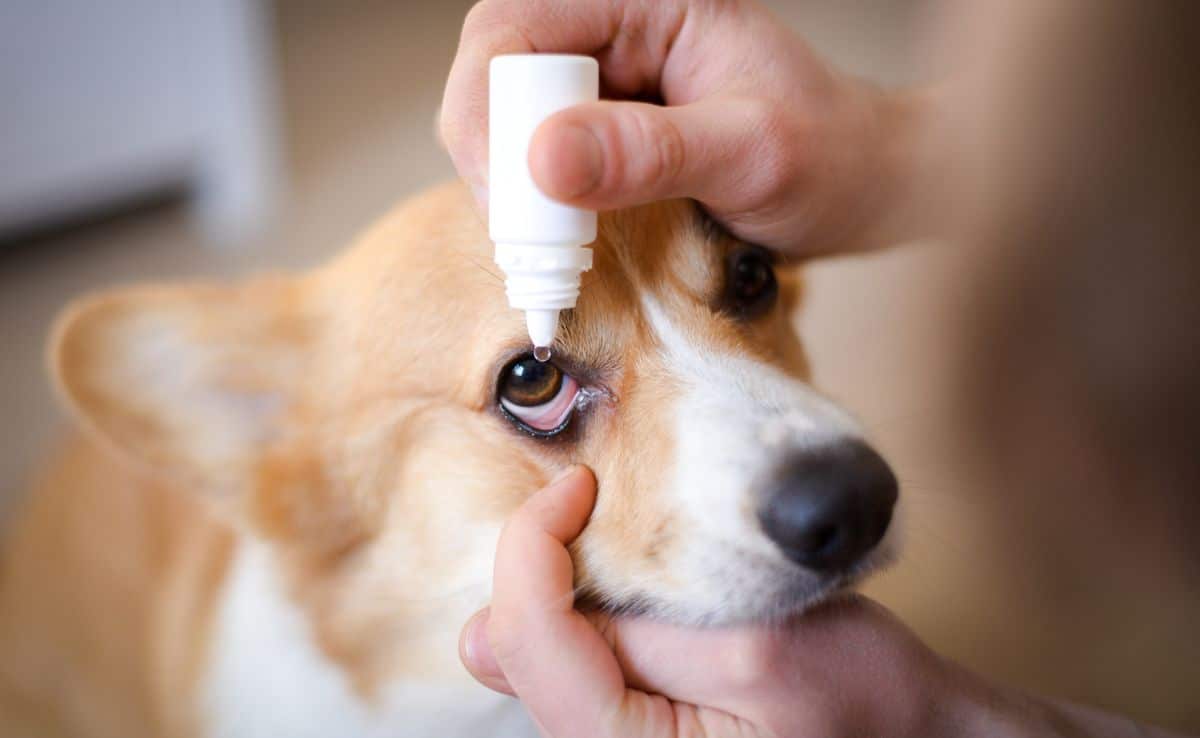Best Urine Test Strips For Dogs: At Home Dog UTI Test & Tips On Collecting Dog Urine
When you purchase through links on our site, we may earn a commission. Here’s how it works.
A pet urine test gives you the results for urine-related illnesses, including bladder infections, kidney stones, and urinary tract infections (UTIs). This can be very handy for pet owners whose dogs experience UTIs frequently (learn more about the symptoms and treatment of UTIs in dogs). Can you test a dog for UTI at home? Yes, instead of taking your dog to the vet for a dog UTI test, you can conduct one at home by purchasing a urine test for dogs. Then, you can consult with your vet about the results and get the appropriate treatment and medication. So, let’s look at what dog urine tests look for, my top urine test strips for dogs, why I’ve chosen them, and more helpful information.
Table of Contents
| Best Kit Overall | Best Urine Strips | Best Urine Collector |
|---|---|---|
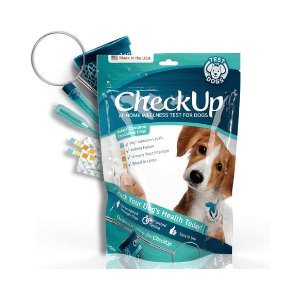 |  | 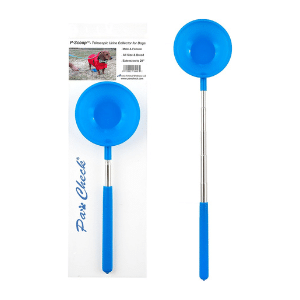 |
| Kit4Cat | Health Mate | PawCheck |
| View on Amazon | View on Amazon | View on Amazon |
| Read Review | Read Review | Read Review |
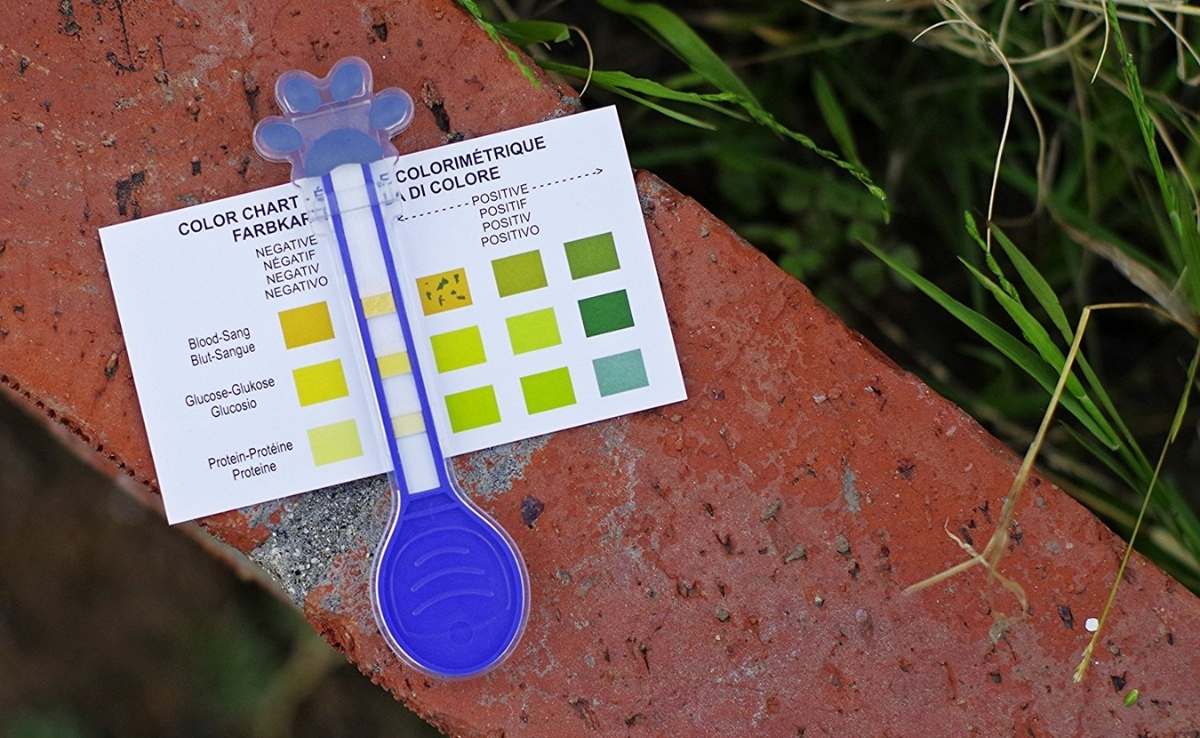
What Do Dog Urine Tests Test For? 10 Parameters
Dog urine tests can check for the following parameters. However, not all urine tests look for all of these. So, if you’re looking for a specific test, be sure to read the product description.
- Bilirubin. Too much bilirubin can lead to liver disease, such as jaundice. Small amounts of bilirubin in your dog’s urine are normal.
- Blood. Blood in the urine can be a sign of cancer, familial hematuria (hereditary), or UTIs.
- Glucose. If glucose is detected in your dog’s urine, it could be due to various complications.
- Ketones. There should be no ketones in your dog’s urine. If there are, it typically means your dog is burning stored fat for energy instead of glucose. This is common for pets who refuse to eat or have diabetes.
- Leukocytes. The level of Leukocytes, also called white blood cells, is ideal when few or none are found in urine. When more are present, it can mean your dog has a bacterial infection.
- Nitrate. The presence of nitrate in a dog’s urine can indicate a bacterial UTI.
- pH. The pH level for a healthy dog is typically between 6.5 to 7.0. If the pH is not within this range, it may allow bacteria to thrive. However, your dog’s pH level may fluctuate throughout the day, so if your dog’s pH level does not fall within this range, you shouldn’t be immediately alarmed.
- Protein. Protein in your dog’s urine can be associated with lower urinary tract disease, renal dysfunction or damage, or reproductive tract disease.
- Specific Gravity. Normal or high urine-specific gravity typically indicates that your dog’s kidneys function properly. However, if it is too high, it can also mean that your dog has developed diabetes. If your dog has low urine-specific gravity, it could mean your dog’s kidneys are failing.
- Urobilinogen. Urobilinogen is a breakdown of hemoglobin in your dog’s red blood cells. A small amount in your dog’s urine is normal. Abnormal levels of urobilinogen can mean your dog has hemolytic anemia or gallstones.
Remember that these urine tests are a guide, and a vet’s care is essential for a proper diagnosis and treatment.
2 Best Urine Test Strips For Dogs
I have chosen the following urine test kits, strips, and urine collectors for dogs based on several factors, including their quality, testing capabilities, customer reviews, price, and more.
Best All-In-One Kit: KIT4CAT CheckUp At Home Wellness Test For Dogs Review
View on Amazon | View on Chewy
The CheckUp Wellness Test from Kit4Cat is an all-inclusive dog urine test kit. It includes a telescopic pole, disposable urine collection cup, vial, pipette to help you collect your dog’s urine, and two testing strips to test it. This UTI test for dogs detects the presence of nine of the parameters outlined above (but not nitrate). The kit also includes a dog urine color chart to help you decipher results. It includes all the equipment you need to test your dog’s urine.
Price
Best Test Strips: Health Mate Vet-10 Review
Unlike the kit I reviewed above, Health Mate’s product only contains dog urine test strips. However, these strips test for all ten parameters above, making this the most suitable option for testing your dog’s nitrate levels. You get 50 test strips, so it’s a great value if your dog suffers from regular UTIs. Apart from a urine color guide, this option includes nothing else. Therefore, you may want to invest in a dog urine collector like the one below to avoid mess.
Price
Best Dog Urine Collector: PawCheck P-Scoop Review
If you’ve never attempted to collect a sample of Fido’s pee before, trust me when I say it can be messy. This is why I recommend that you use a urine collector like this one. PawCheck’s P-Scoop telescopic device is designed to collect male and female dog urine in a simple, noninvasive, and clean method. The device extends to 29 inches and can be retracted for easy storage. It is made of sturdy plastic that’s simple to clean and reusable.
Price
How To Collect A Urine Sample From Your Dog
The best time to collect your dog’s urine is in the morning when their bladder is full. Check out this brief video for excellent tips on how to get your dog’s urine sample.
Your Pet Still Needs To See The Vet
As a friendly reminder, a urinalysis test for dogs isn’t meant to replace your pet’s annual vet checkup. These are intended to be used as a preventative form of testing to help keep your pet healthy between vet visits. If you suspect your dog is ill or they are in pain, you should seek immediate veterinary care rather than try to diagnose your dog yourself.
Urinalysis – What Will A Vet Do?
Your vet will likely want to conduct their own urinalysis, even if you show up with your own test results. This is to ensure that the results are correct and that your pet gets the best treatment. Traces of chemicals or human sweat can affect the test result. If further tests, such as a urine culture, are required, your pet’s urine sample might be sent to the laboratory.
Sometimes, your vet might need a urine sample via cystocentesis, a common clinical method that collects a sample of urine directly from a dog’s bladder. The reason for using cystocentesis might be that the sample was voided or the pup was uncooperative. Urine that passes through the urethra might be contaminated by bacteria or blood, making these free-catch samples unusable.
Although a needle is used, cystocentesis is generally pain-free. Cystocentesis should only be conducted if it’s impossible to use a catheter, and catheterization should only be accomplished by a vet. Once your vet has the urinalysis results, they can hopefully diagnose your pup’s health concerns. With diagnosis, appropriate treatment can begin.
Can Pet Insurance Help?
Pet healthcare costs can be eye-watering, so it is important to consider pet insurance for your dog. It can help protect your family from financial worry while ensuring your pup receives the necessary care. Our pet insurance expert has reviewed the best pet insurance companies. Not sure which pet insurance company is best for your dog? We’ve created a free quote widget below to pull prices from our top companies.
Frequently Asked Questions
We know that many of our readers still have questions about dog urine tests. If you don’t see your question, please ask us in the comments section below, and we’ll get back to you as soon as possible.
How Do I Read Dog Urine Test Strips?
First, reading the instructions according to your purchased product is essential, as some require different collecting methods. Keep the test sterile because other chemicals and substances can affect the results. Once you’ve correctly dipped the urine strip in the sample, let the test rest for the stated amount of time. Then, compare the strip to the color chart that comes with the product for the results.
What Can Dog Urine Tests Show?
Urine tests can show whether your dog might have a UTI, diabetes, organ disease such as kidney or liver, hormonal diseases such as Cushing’s disease, bladder infection or inflammation, crystals, and more. They can also detect some cancers in dogs.
How Much Does Dog Urine Test Cost At The Vets?
A basic dog urine test at the vet can cost more than what you’d pay for a dog urine test at home, and that’s without the consultation fee. My research shows that a basic urinalysis can cost between $75 and $100. Although your vet will conduct their own urinalysis regardless of the test you’ve done at home, it can be helpful for some owners to conduct DIY dog urine testing with these at-home kits.
Can I Use A Human UTI Test On My Dog?
Using a human UTI test on a dog is not recommended. While some similarities exist between human and canine urinary tract infections, there are significant differences in the composition of urine and the specific bacteria involved. Therefore, a human UTI test may not provide accurate results for a dog. Attempting to use a human UTI test on a dog could lead to incorrect results or delay proper treatment. To ensure your dog’s health and well-being, seek guidance from a qualified veterinarian for any medical concerns.
Other At-Home Dog Testing Kits To Consider
While you’re in the sample-collecting groove, why not consider an at-home dog DNA testing kit? Our Embark DNA kit can tell you lots of things about your dog’s genetic history, health, and more. You can also test for dog allergies at home, and we recommend five of the best allergy testing kits for dogs. If you suspect your pooch might be expecting, we also have a guide on the best pregnancy tests for dogs.
Have you used any of these at-home dog urine tests? Perhaps you’d like to share your urine-collecting experiences and tips with us and your fellow readers. Hit us up in the comments below.
Why Trust Canine Journal?
Emma is a dog mom to two rescue dogs, Bonkers and Chips. She is passionate about researching and understanding canine health problems so that she can keep hers and help her readers and their dogs be as healthy as possible. When she is not researching or writing about canines, she is walking hers on the local beach, trying to stop her young Doxie, Chips, from harassing her senior pooch. Emma works with a dedicated team at Canine Journal to be a reputable online resource for all things dog.
